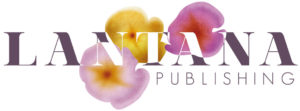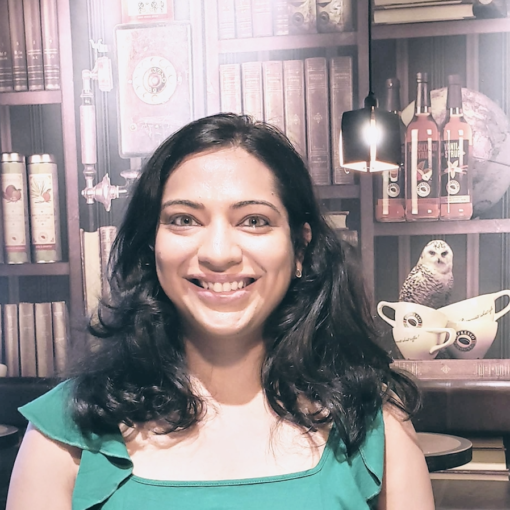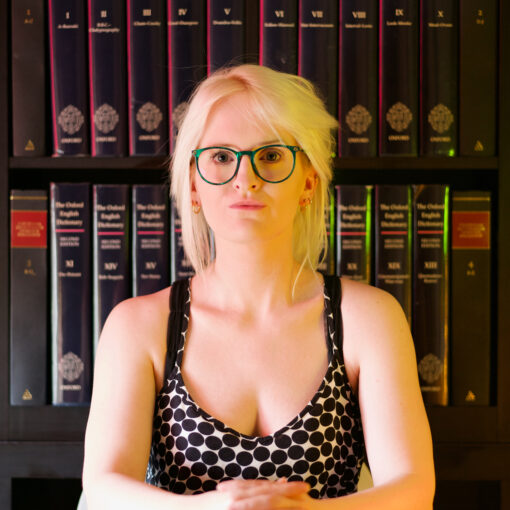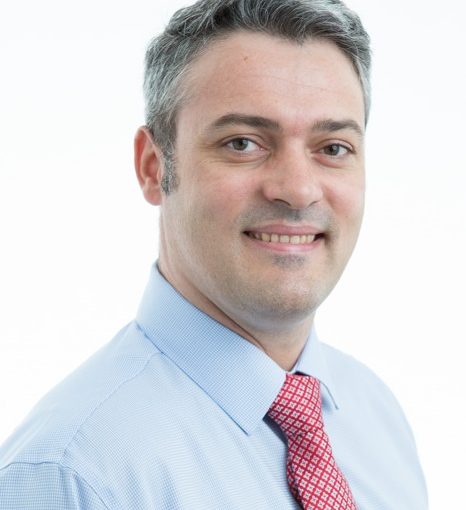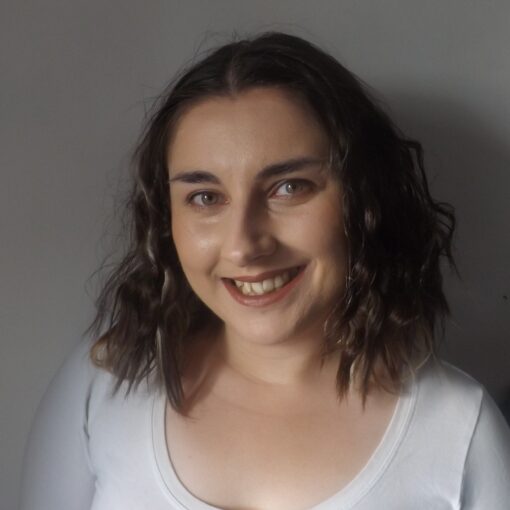PhD in Children’s Literature, Macquarie University, Sydney (2012)
| Founder & CEO | |
|---|---|
| Lantana Publishing | |
Year entered into a non-academic position: 2014
Job highlight: Receiving the Kim Scott Walwyn Prize for Women in Publishing in 2017 for having founded my own company.
My research training set me up to… Analyse and evaluate manuscripts, hone in on the strengths and weaknesses of a text, write and edit fluently, and spot gaps in the literary canon.
Left academia after: PhD
What’s your background?
I studied for a BA in English Language & Literature at Oxford, then planned to spend a year in Sydney, Australia, doing a Masters in Children’s Literature…which turned into four years while I completed a PhD which turned into seven years while I worked as an Associate Lecturer.
Why did you move away from academia?
I spent the best part of three years after my PhD with a foot in both camps: lecturing, tutoring, researching and writing as an Associate Lecturer, while also undertaking freelance editorial projects for charities and publishing houses. This meant that my move away from academia was only gradual, since I maintained strong links to my academic institution while also gaining industry experience. A moment came in early 2014 when an extended freelance project came to an end and I decided to return to the UK. My choice then was very stark: try to pursue an academic career in a new country or begin a new career in publishing. I thought long and hard about it and finally chose the latter.
Is there anything you miss about academia?
I miss the opportunity to delve into texts to a depth that the fast-paced nature of publishing unfortunately doesn’t allow. I miss the excitement that comes from that spark of an idea that can germinate into an academic article, although find that this spark is also present in publishing when you discover an exciting new voice, or help an author produce the best possible version of their work through editorial feedback.
How did you get this job? Did you face any challenges when considering a move away from academia or applying for the role?
Being the founder, I obviously didn’t have to undergo the hurdles of applying for an advertised position…but that didn’t necessarily make it any easier since it represented a huge risk – not only in moving out of academia and into an industry I knew little about but also in setting up my own business. It was a decision I agonised over for several weeks.
What motivated you to/why did you choose the sector you transitioned into?
With degrees in English and Children’s Literature, I always knew my career would revolve around books, but where I could make the most difference or find the most fulfilling career was less clear. In the end, the decision almost made itself since it had become clear through both my academic studies and my subsequent freelance work that there was a significant gap in children’s literature for inclusive books by underrepresented authors. Having acknowledged this gap, and understanding the damage that this can cause young readers from diverse backgrounds, I felt that I had a reason and perhaps even a responsibility to try to fill that gap.
Did you think you had the skills required for your current position before you started? Were you right?
There is a lot of talk about imposter syndrome, experienced particularly by women, and I’m no stranger to that feeling. It’s fair to say that I knew very little about publishing or entrepreneurship when I founded Lantana and had to learn very quickly from the bottom up. However, I knew that I had a baseline foundation of skills and knowledge – about books, about editing, writing and analysis – that would see me through at least some of the challenges, and I was right about that at least.
How did your PhD prepare you for your current job? For example, what were the transferable skills that you developed during your PhD that are most relevant to your current job?
Doing a PhD is a very intensive process where you hone in on the minutest details and perfect your arguments (as far as you can). While letting go of some of that perfectionism is a prerequisite when you have deadlines, budgets and sales targets to meet, it does still train you in the eagle-eyed attention to detail you need as a publisher and can help you distinguish between a good book and a great book.
Did you have any preconceptions about your sector that proved to be wrong?
Publishing is a very opaque industry and almost impossible to understand fully from the outside so I had few preconceptions. My lack of experience working as an in-house staff member in a publishing house meant that I was even less prepared, but my naivety in many ways proved to be a strength since it stopped me falling into the tired old ‘this is how it’s always been done’ mentality.
Can you describe a typical week in your job?
I’m not sure there is such a thing as a typical week in my job given that a lot of it revolves around responding to new opportunities and new challenges that arise daily. However, I tend to think of it as a mix of ‘management’ and ‘leadership’ – the first involving working with my team and our network of contractors, freelancers, sales reps etc., and the second establishing a vision for the company and thinking strategically about our list and where we want to go as a company.
What is the workplace culture like? Please include comments on work-life balance, flexibility, remote working?
We are a small team with lots of freelancers working remotely (one of my colleagues is currently working from the Philippines!), so we’re very flexible and try to accommodate everyone’s needs and situations. The danger of running your own business is that it’s almost impossible to switch off, but I’ve become quite good over the years at putting work aside when I need to relax, which is a pretty vital skill if you want to survive the entrepreneurial rollercoaster.
Do people with a PhD frequently get hired in the company/sector?
Yes. PhDs are in no way a prerequisite for publishing but they won’t harm your chances either.
What are your favourite parts of your job?
Visiting schools and libraries with our authors and seeing children’s faces light up when they recognise themselves or their communities in one of our books, possibly for the first time.
What are your reflections on your career path?
I’m proud of my journey so far and can recognise where the seeds of my current role were first sown in my journey from academia through freelancing and into publishing, even if at the time my career path didn’t feel totally linear.
Do you have any advice for current graduate students and postdocs considering a career outside of academia?
Trust your instincts and don’t let doubts get in the way, even if the decision to try something new is more risky than staying put. There’s also no reason to cut off ties with academia completely; as an example, I currently work with several Masters students from different universities who undertake research and development projects for us, and we regularly host university students as interns. If you become an expert in industry, there’s every chance that a university will invite you back to guest lecture in the future, so it’s never a closed door.
What do you know now that you wish you’d known when exploring a transition?
That there’s no need to worry about knowing too little or not having enough experience – there will always be more to learn and if you’re passionate, committed and hard-working, you’ll find that learning new things every day and gaining new experiences is one of the most rewarding parts of transitioning into a new career.
Can you recommend any relevant resources, organisations or events that might help somebody new to the sector find out more about it?
The Society of Young Publishers is a fantastic resource for people entering, or thinking of entering, the publishing industry (and don’t be put off by the word ‘young’ – it doesn’t necessarily mean young in years but rather young in experience). You can find out more here: https://thesyp.org.uk/.
Lantana is an award-winning children’s book publisher that has been shortlisted for the Bologna Prize for Best European Children’s Publisher of the Year, the Clarissa Luard Award for Independent Publishing, the National Children’s Book Award Regional Small Press of the Year and the Skoll Venture Award for Social Enterprise.
Specialising in picture books and illustrated nonfiction for young readers, Lantana’s mission is to publish inclusive books celebrating diversity, social equality and environmental sustainability and to better reflect readers who identify as Black, Asian or Minority Ethnic, LGBTQ+, working class or disabled.
Because all children deserve to see themselves in the books they read.
Lantana welcomes speculative enquiries from students and graduates looking for internships or work experience.


